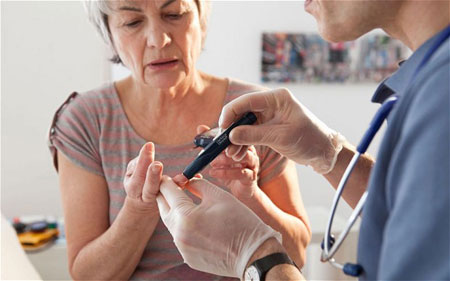
|
A blood test that can predict whether someone may attempt suicide has been developed by scientists in a breakthrough which could prevent hundreds of deaths. American researchers have found that variations in a single gene can be used to predict if someone is likely to take their own life. Researchers at John Hopkins University, in Baltimore, Maryland, found that the gene SKA2 stopped functioning correctly in people at risk of suicide. The SKA2 gene is found in the prefrontal cortex of the brain, and is involved in preventing negative thoughts and controlling impulsive behaviour. If there isn't enough SKA2, or it is altered in some way, the body cannot control levels of cortisol. Previous research has shown that people who attempt suicide or who take their own lives have large amounts of cortisol in their systems. A test could allow doctors or psychologists to place patients on ‘suicide watch’ and restrict their access to drugs or equipment which they could use to end their own life. The research was reported in the American Journal of Psychology. "We need to study this in a larger sample but we believe that we might be able to monitor the blood to identify those at risk of suicide," Kaminsky said. "Suicide is a major preventable public health problem, but we have been stymied in our prevention efforts because we have no consistent way to predict those who are at increased risk of killing themselves," says study leader Dr Zachary Kaminsky, an assistant professor of psychiatry and behavioural sciences. "With a test like ours, we may be able to stem suicide rates by identifying those people and intervening early enough to head off a catastrophe." The blood test managed to predict those with the most severe risk of suicide with 90 per cent accuracy. They could also spot if someone had already attempted suicide with 96 per cent accuracy, simply by looking at the levels of SKA2. |
据英国《每日电讯报》报道,研究人员取得科研突破,通过验血来预测人们是否具有自杀倾向,从而防止众多悲剧发生。 美国研究人员发现,通过验血可以检查一种基因是否发生变异,从而预测某人是否企图自杀。 美国约翰•霍普金斯大学研究人员发现,存在自杀风险的人的SKA2基因功能异常。SKA2基因位于大脑前额皮质,负责控制体内压力荷尔蒙皮质醇的含量,能够防止人们产生消极情绪并控制其冲动行为。 若体内SKA2基因含量不足,或以某种方式发生变化,人体将无法有效控制皮质醇含量。此前的研究发现,自杀或有自杀倾向的人体内皮质醇含量较高。 因此,通过验血检测下SKA2的水平或者是否发生突变,能够允许医生对具有自杀倾向的人进行观察,同时防止他们靠近药品或其它自杀工具。 该研究发表于《美国心理学杂志》,主要负责人凯明斯基表示:“该研究还需加大样本量,但我们相信,可以通过验血辨认出那些具有自杀风险的人。” 精神病与行为科学助理教授扎卡里•凯明斯基表示,自杀是我们目前面临的主要公共健康问题,但由于缺乏直观的途径预测人们的自杀风险,导致我们无法及时预防。 “但通过我们的测试,我们可以及早确认并干预具有自杀倾向的人群,从而降低社会自杀率。” 据报道,通过验血预测最严重的自杀风险精确度高达90%,同时,只要简单观测一下SKA2的水平,便能以96%的精确度判断某人是否已企图自杀。 扫一扫,关注微博微信
  (译者 高晴 编辑 王辉) |
